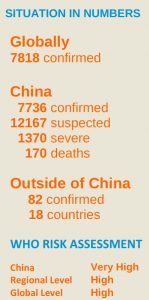New York – The United Nations is expected to have a high-level meeting to discuss efforts to scale-up its response to the Ebola Virus Disease.
United Nations Secretary General Ban Ki-moon will convene leaders gathering in New York for the upcoming high-level segment of this year’s United Nations General Assembly to highlight the urgent needs and required response to the Ebola outbreak in West Africa.
This emerged on Tuesday when the Secretary-General spoke with the United States President Barack Obama and discussed the need to urgently increase international efforts to combat the Ebola outbreak in West Africa.
Ban, who has been making a series of calls to key countries and organisations to urge more support for countries affected by the disease, informed President Obama that he is planning to convene a high-level event during the General Assembly to highlight the needs and required response from governments, non-governmental organisations (NGOs), the private sector and academic institutions.
The 69th Session of the General Assembly will convene at UN Headquarters on Tuesday.
The UN World Health Organisation (WHO), meanwhile, says the number of cases topped 4 200, and reported that thousands of new cases are expected in Liberia over the coming three weeks.
“Conventional Ebola control interventions are not having an adequate impact in Liberia,” WHO said in an update on Liberia, “though they appear to be working elsewhere in areas of limited transmission, most notably in Nigeria, Senegal, and the Democratic Republic of Congo”.
According to WHO, as of 6 September, 4 269 cases and 2 288 deaths have been reported in the current outbreak of Ebola Virus Disease in Guinea, Liberia and Sierra Leone.
In Nigeria, there have been 21 cases and 8 deaths. In Senegal, one case has been confirmed.
Meanwhile, at UN Headquarters, the Secretary-General’s Special Representative for Liberia, Karin Landgren, briefed the Security Council today, warning that the Ebola crisis has become complex, with political, security, economic and social implications that will continue to affect the country well beyond the current medical emergency.
Landgren added that Liberians are now facing the gravest threat since the war – one that would challenge any government or society.










